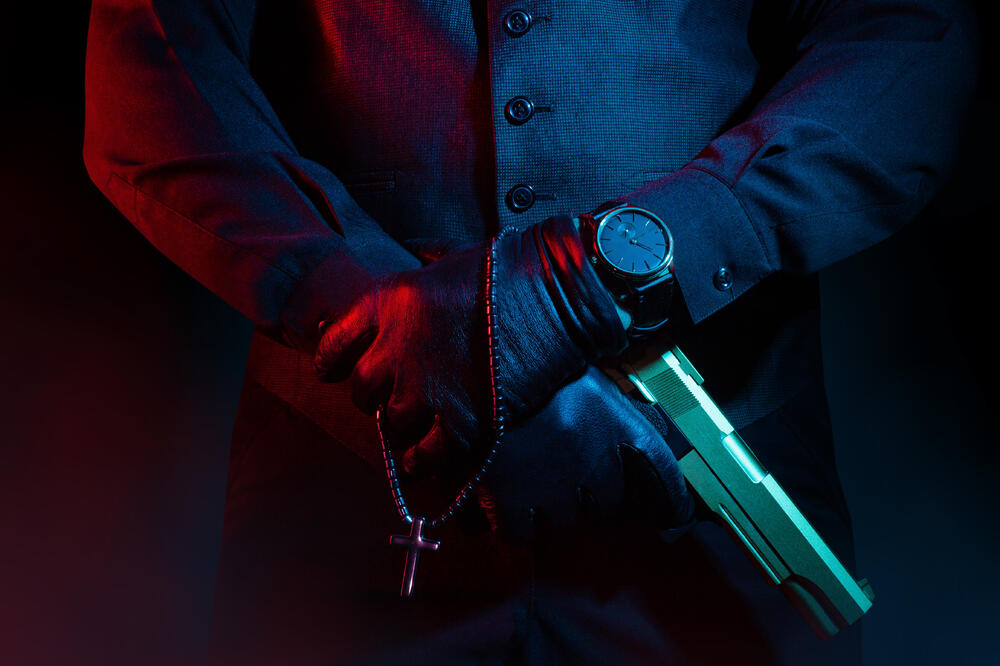The appearance of the "new religiosity" in the twilight years of Yugoslavia was funny and sinister at the same time. There was something Nušić in that sudden change of social paradigm, and on the other hand, the burden of historical experience clearly pointed to the genre that would follow: national horror.
The hypocrisy of disguised "party members": that was the foundation on which this new religiosity rested. Again, it is certain that a religious practice with such a genesis cannot anytime and in any way lead to something truly authentic or spiritually valuable.
The dominance of such religiosity pushes society into an orgy of stupidity and banality. In any case, closer to caricature than reality.
And then you get murderers who wave the cross, starlets who recount their religious experiences and quests, politicians who court mantles, "Christians" who call for blood and revenge, so that we remain in the more or less jovial registers of the current media civilization, so that we do not return to the nineties when "in the name of our god" homes were set on fire and nations were destroyed.
While Yugoslav societies were dominated by atheists, the thing worked somehow, when the newly religious became a convincing majority, it went where it went. In the end, just because someone believes they are a good Christian does not mean they are a good Christian at all.
Isn't this kind of problem, and that from two sides, with two omens, shown by this gloomy one-year story about the law on religious communities? And in the end, the matter "went away" without a serious public discussion, because, again, it was some other calculation, far from the question of religion. This whole story showed the immaturity of a society and its elites to seriously deal with important issues, respecting the democratic spirit and procedures, and not the logic of this or that urgency. And beyond the story of the ill-fated law, there are a few details of recent weeks that clearly illustrated the limits of such religiosity. And not only limits, but also her deep perversity.
Let's say, the primitive attack on the Latin woman Perović, where a virtuous "Christian" most directly, frighteningly explicitly invokes her death, with a hypocritical "God forgive me". What does he think of his god when he asks his forgiveness so easily? Commitment to the superficial pseudo-spirituality of social networks is already a telltale symptom, but here the rhetoric and the choice of figures are interesting, ranging from invoking fire to burn (leave the weakest) to unworthy banal observations about people. A moment that is perhaps even more deeply disturbing, because it points to a very problematic mental profile, and to a huge identity confusion, is an insult uttered by a woman and so deeply anti-woman. The word "babetina" was crossed out. "When will this babe tell the truth."
What are the nuances of meaning... While earlier we learned about "grandmother" (that's the one on mescaline, which claims that Montenegrin women get married in black), now we also know - babetina. Grandma is a wonderful, idyllic creature who tells fairy tales, and Babetina is the one who tells the truth that I don't like. Babetina should go "to God for the truth", while grandma will continue to talk nonsense... By the fire. Which later should burn the enemies of all the fellas. (Ah, yes: “deprives the weaker”; the god must see her touching humanity.)
Believer? Maybe some Aztec cult, but it is clear that this has nothing to do with Christianity...
Hiding serious political problems under the veil of religious emotions is not at all Christian. That is why churches should not be trusted as long as buildings are more important to them than people. Fortunately, I'm an atheist, so I don't have to worry about the market for Orthodox souls in Montenegro.
Is it possible for anyone to believe that such things are just incidents and not clearly articulated policy? Mrs. Bratić, exactly the way she is and precisely because of that and not something else, was chosen to be what she is.
And we will continue to play hide and seek...
Bonus video:





